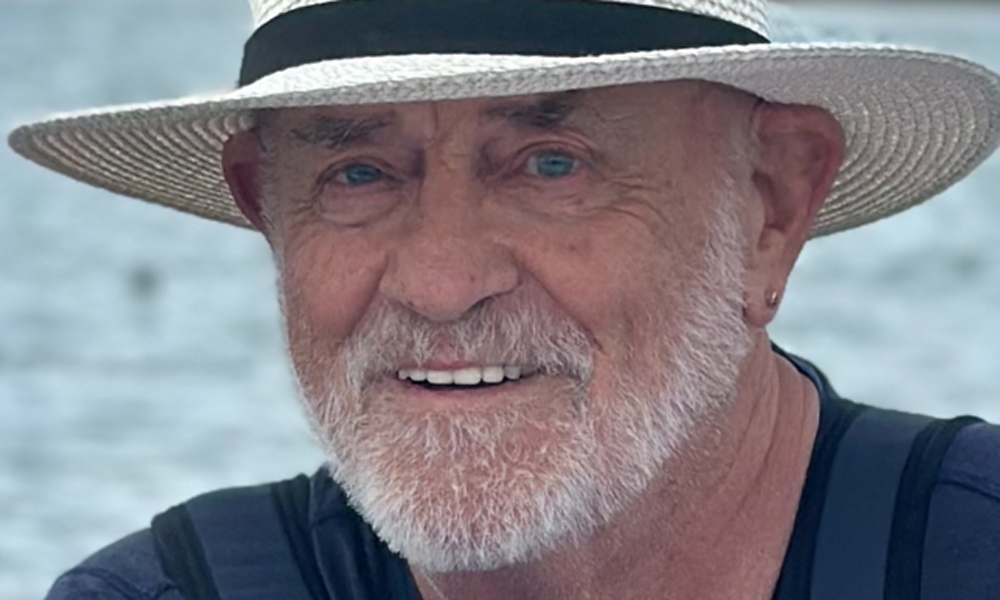What is your job and where does it take you?
I’m a master mariner, but now work as a marine consultant specialising in salvage and wreck removal. I’m a member of Lloyd’s panel of Special Casualty Representatives, one of 49 worldwide. When not attending marine incidents, I undertake high-level marine consultancy work. Apart from office-based instructions, my work largely takes me around the Oceania region.
Describe a typical day at work.
There is no typical day. Usually, early morning or late at night I triage emails for urgent action items. I keep a bag packed downstairs for when I get emergency calls – I can grab it and be gone within an hour. Often these emergency calls come through late at night as news of an incident emerges, and by early morning I am already travelling to site. I don’t even count the number of anniversaries, birthdays and family events I’ve missed; the job comes first.
What epitomises a tough day at work?
You get a call late at night when a family weekend is planned, so by 0600 you’re on a plane towards an unheard-of destination in Oceania. My travel agent is trying to work out where it is, how to get there and where to stay. While travelling, you’re gathering casualty and site information as well as liaising with stakeholders. The initial stage is always quite chaotic until you can survey the casualty, develop process and mobilise resources. Owners and insures call me because out of the chaos, I can create order, save lives, protect the environment and salvage property.
What was your most dangerous experience on a job?
Where do I start? When we were doing the wreck removal for the Rena, we had a chain run away. We were passing the lifting chains through the accommodation, and there was an error with a chain puller. I was standing beside the puller when it let go of the chain. Instinctively I just ran – taking cover behind a container. The chain end was like a steel serpent as it swept barge’s deck demolishing everything before disappearing over the side. Amazingly, no one was killed.
What is a cultural nuance you need to consider while working in the Pacific?
If there is a grounding near the shore in the Pacific, or on a reef close to the shore, an important thing to remember is that a clan or landowner owns the land or reef. Anything that comes onto that land or reef is regarded as a gift from the sea and is therefore now their property. One must negotiate with the seats of power to ensure the casualty is not boarded or ransacked, that everyone is kept safe and even that salvage equipment doesn’t get ransacked.
Do you ever encounter language barriers?
It’s usually pretty good. The hardest job we had was in New Caledonia; we had a Franco-Kanak jurisdiction, Chinese contractors, and I’m Tasmanian. My French is rubbish, and my Shanghainese not much better, but you make it work. It’s more about developing relationships than it is about language. We focus on hierarchy in the west, whereas in the Pacific people like to know where you come from and who you are. You can overcome any language barrier by finding common ground and displaying mana – an intangible presence which means power and influence. You can’t buy mana; you either have it or you don’t. Having a bit of personal mana goes a long way.
How did you end up in this industry in the first place?
I’m the son of a fisherman. I first went crayfishing with dad on the west coast of Tasmania when I was seven. I was the bait boy. All I ever wanted to do was go to sea. I went to sea with BHP as a deck cadet and spent 15 years with the company, then a couple of years in oil and gas and did some salvage as well. Then, I went abalone diving for 10 years and went back into salvage. I’ve always done what no one else wants to do and I’ve always gone where no one else will go.
If you ever get down time, how do you spend it?
I’ve got a fishing boat, so I go deep sea fishing. I also love fly fishing. I’ve got a sports boat which I’ve sailed in a world championship, and I spent a lot of time supporting my kids who are both elite athletes; one in rowing and one in sailing. Both are high achievers. Where would they get that from?
If you could only eat food from one region for the rest of your life, which would you choose?
I just cooked up a feed of Tasmanian white bait and hand-caught scallops on the weekend, for visitors. I still dive, so I caught the scallops. I would not relinquish the right to catch and consume Tasmanian seafood.
This article appeared in the November 2022 edition of DCN Magazine.





